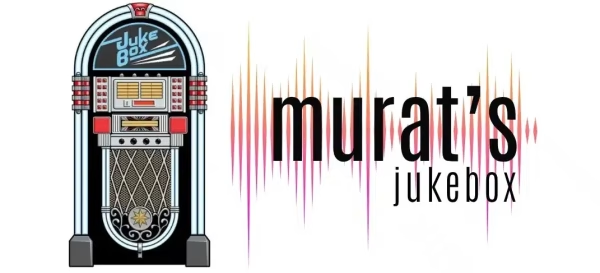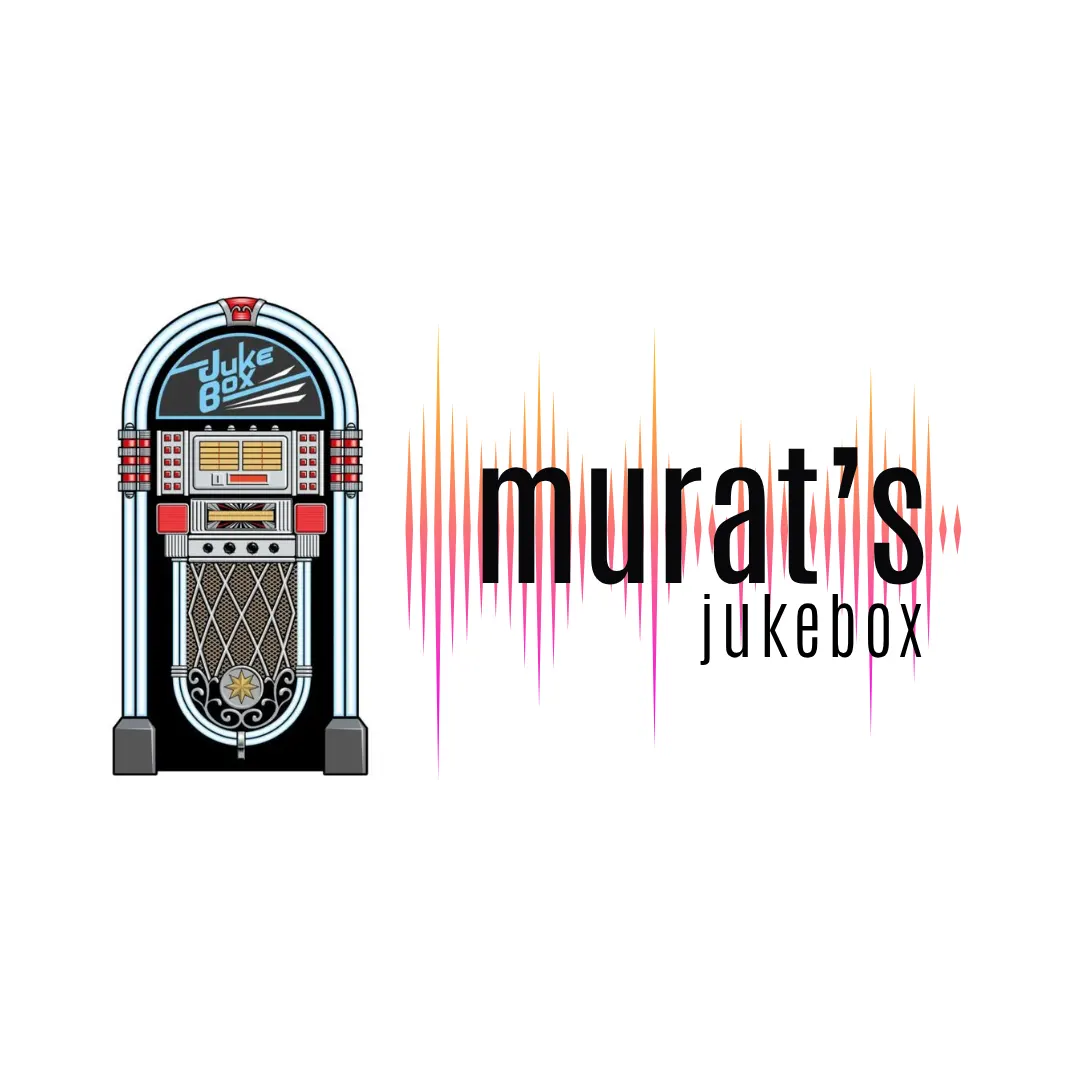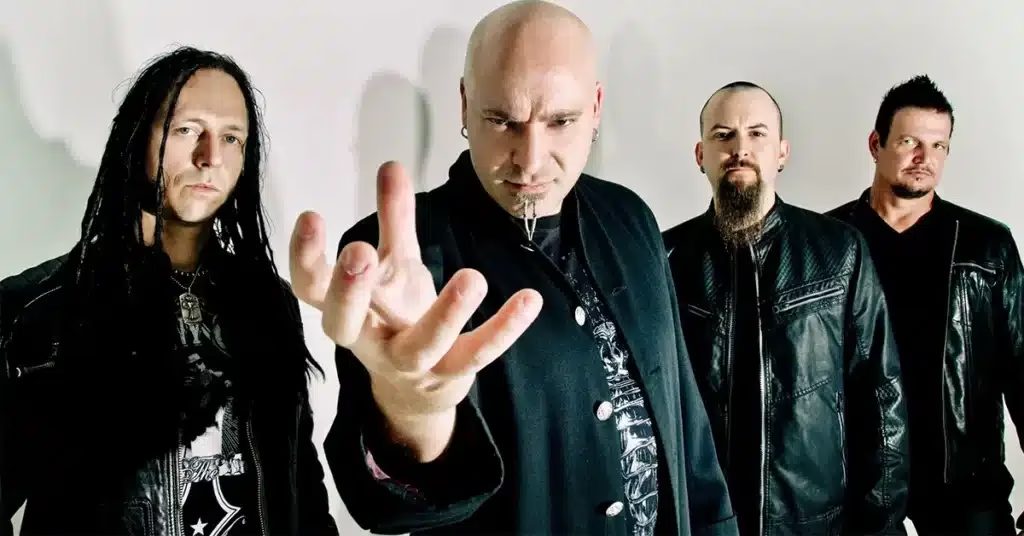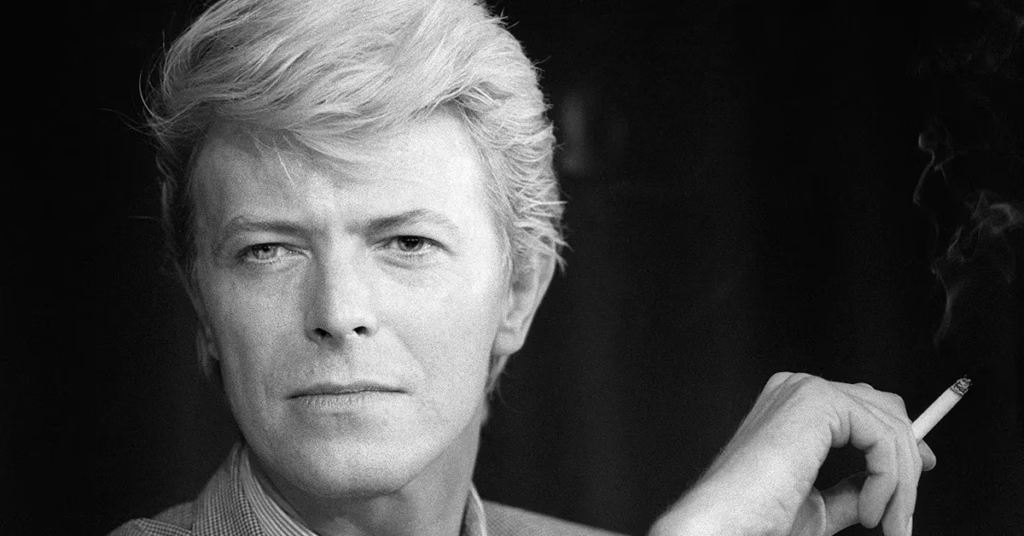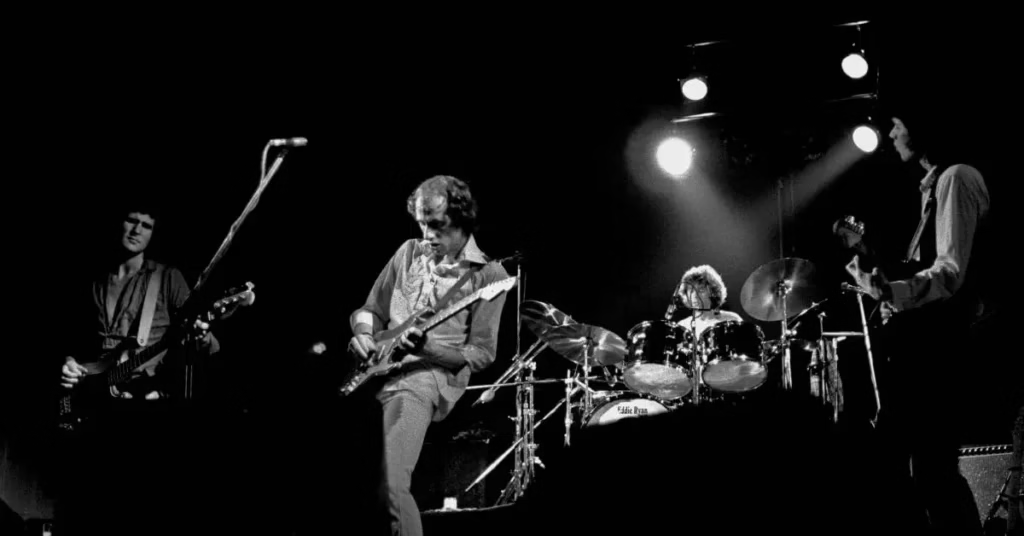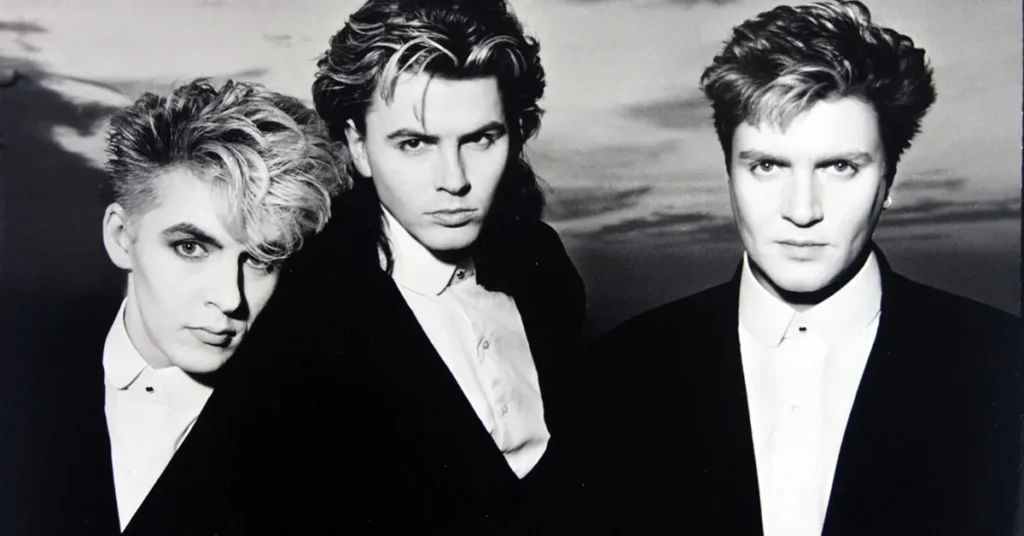Disturbed: The Unyielding Voice of Modern Metal
Disturbed. Origins in Chicago: The Rise of a Powerful Force
Disturbed is one of the defining bands of the nu metal and alternative metal era, rising from the underground scene of Chicago in the late 1990s to global acclaim. Their music blends aggressive guitar riffs, dark lyrical themes, and powerful, emotive vocals, often confronting personal demons, societal issues, and mental health topics head-on.
The band was formed in 1994 when Dan Donegan (guitar), Mike Wengren (drums), and Steve “Fuzz” Kmak (bass) were looking for a new frontman. After auditioning several vocalists, they were blown away by David Draiman, whose distinctive voice and intense presence completed the lineup. The band took on the name Disturbed—a reflection of their interest in themes of dysfunction, inner turmoil, and rebellion.

Disturbed. The Game-Changing Debut: The Sickness (2000)
In 2000, Disturbed released their debut album “The Sickness”, which became a cornerstone of early 2000s alternative metal. The album’s iconic single “Down with the Sickness”—with Draiman’s unforgettable “Ooh-wah-ah-ah-ah!” vocalization—catapulted the band into the mainstream. Other hits like “Stupify” and “Voices” showcased their lyrical focus on alienation, anger, and psychological struggles.
With a potent mix of heavy metal instrumentation and electronic elements, The Sickness earned multi-platinum status and turned Disturbed into one of the most important voices of the nu metal movement, alongside acts like Slipknot, Korn, and Linkin Park.
Evolution and Mastery: From Believe to Ten Thousand Fists
In 2002, the band released “Believe”, a more melodic and spiritual album reflecting Draiman’s personal introspection, especially after the loss of a close family member. Songs like “Prayer” and “Remember” explored themes of faith, resilience, and doubt, signaling a more mature lyrical direction.
By 2005, Disturbed fully embraced their metal roots with “Ten Thousand Fists”, a powerful political and anthemic statement. Featuring tracks like “Stricken”, “Guarded”, and a thunderous cover of Genesis’ “Land of Confusion”, the album was a declaration of identity, independence, and aggression.
This album also marked the first appearance of John Moyer, who replaced Fuzz Kmak on bass. Moyer’s contributions helped further solidify Disturbed’s heavier sound.
Consistency and Success: Indestructible and Asylum
In 2008, “Indestructible” arrived as an emotionally charged and musically relentless record. The title track became an anthem of empowerment for soldiers and individuals facing personal battles. With standout singles like “Inside the Fire”, which deals with suicide and loss, the album combined brutal honesty with musical precision.
In 2010, “Asylum” continued this approach. It debuted at #1 on the Billboard 200, marking the band’s third consecutive number-one album. Songs like “Another Way to Die” confronted environmental degradation, while the title track explored mental illness and grief.
A Pause and Reinvention: Immortalized and “The Sound of Silence”
After announcing a hiatus in 2011, many feared Disturbed might not return. However, in 2015, they came back stronger than ever with “Immortalized”. The album brought fresh sonic textures, but the most surprising moment was their haunting, orchestral cover of Simon & Garfunkel’s “The Sound of Silence.”
David Draiman’s deep, operatic vocals gave the classic song a completely new emotional depth. The performance went viral, received critical acclaim, and showcased the band’s ability to defy genre expectations while remaining true to their essence.
Disturbed. Recent Years: Evolution and Beyond
In 2018, Disturbed released “Evolution”, a record that lived up to its title. It featured a broader range of styles, from hard-hitting tracks like “Are You Ready” to ballads such as “Hold On to Memories.” Though it received mixed reviews from fans craving their heavier side, it demonstrated their desire to grow musically and emotionally.
Their latest album, Divisive (2022), marked a return to their more aggressive sound. Featuring collaborations like “Don’t Tell Me” with Ann Wilson (of Heart), the record dives into political frustration, personal disconnection, and the complexities of the digital age. Tracks like “Hey You” call out to a fractured society in desperate need of self-reflection.
Disturbed. Musical Style and Influence
Disturbed’s style is rooted in groove metal, alternative metal, and nu metal, with rhythmic, down-tuned guitar riffs, syncopated drumming, and Draiman’s dynamic vocal range—ranging from guttural growls to melodic crooning.
Lyrically, they tackle themes of:
- Mental illness
- Societal decay
- Religion and spirituality
- War and oppression
- Personal trauma and healing
Their use of both brutality and vulnerability in their lyrics and sound gives them a unique place in the metal landscape. They’re known for their deep commitment to fans and often speak openly about emotional and psychological issues in interviews and live shows.
Disturbed. Discography Overview
- The Sickness (2000)
- Believe (2002)
- Ten Thousand Fists (2005)
- Indestructible (2008)
- Asylum (2010)
- Immortalized (2015)
- Evolution (2018)
- Divisive (2022)
Each album reflects the band’s evolution—sometimes literally—balancing rage and empathy, destruction and healing.
Legacy and Cultural Impact
With over 17 million albums sold worldwide and multiple chart-topping releases, Disturbed has become more than a band—they are a voice for the disenchanted and broken, a sonic therapy for those who live in shadows.
They’ve headlined major festivals, influenced a generation of metal and hard rock acts, and proven that mainstream success can coexist with genuine, personal artistic expression. Through their music, interviews, and philanthropic efforts (especially around mental health awareness), Disturbed continues to inspire fans across the globe.
